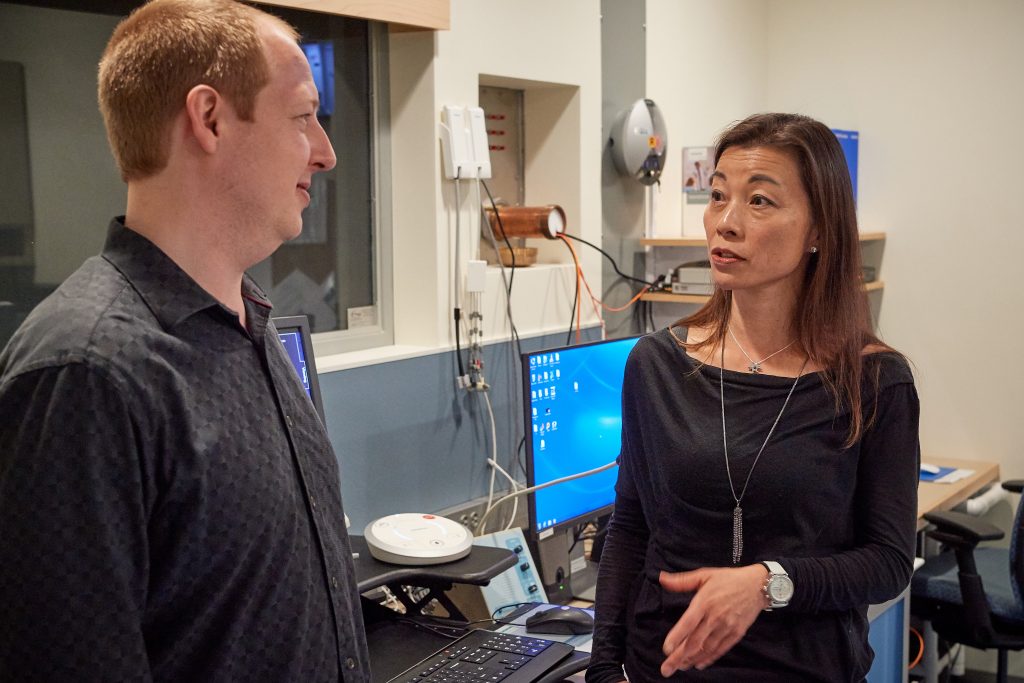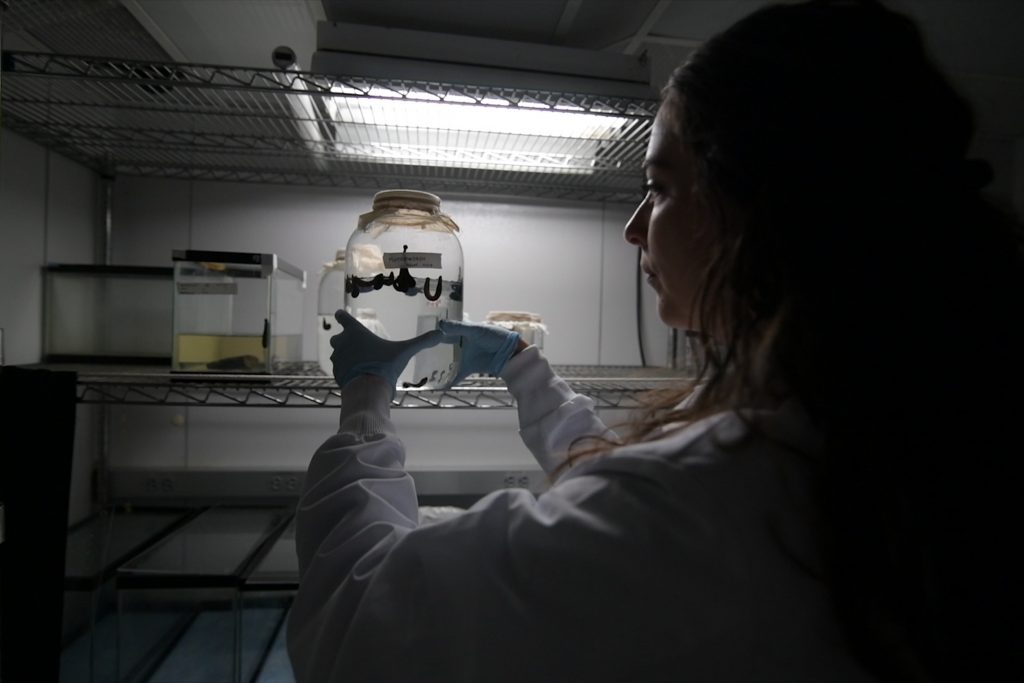
Writer
Kim Krieger
Kim Krieger has covered politics from Capitol Hill and energy commodities from the floor of the New York Mercantile Exchange. Her stories have exposed fraud in the California power markets and mathematical malfeasance in physics. And she knows what really goes on in the National Radio Quiet Zone. These days, Kim tells clear, compelling stories of the research at UConn. Her work connects Connecticut citizens and the press with the vast resources of their flagship public university. When not at UConn, she can be found kayaking among the beautiful Norwalk islands, digging in her garden, or occasionally enjoying the silence in the National Radio Quiet Zone.
Author Archive
A Copper Bullet for Tuberculosis
In a new study, UConn chemists report a new antibiotic that can find and kill tuberculosis bacteria where they hide.
October 23, 2018 | Kim Krieger
Calm the Immune System, Halt Premature Birth
UConn Health researchers found that a drug that blocks the cytokine GM-CSF may reduce the number of preterm births.
October 12, 2018 | Kim Krieger
Cell Death Protein also Damps Inflammation
A new study by UConn Health researchers shows how the body keeps inflammation in check, making double use of a protein previously thought to be responsible only for cell death.
October 1, 2018 | Kim Krieger
When More Bone-making Cells Equal Less Bone
Researchers at UConn Health have shown how a mutated gene causes excess bone resorption in a rare bone disease known as Lehman Syndrome.
September 7, 2018 | Kim Krieger
In Dyslexic Children, Brain Features Can Predict Reading Comprehension
The amount of gray matter in a kindergartner’s brain can predict whether she will have trouble with reading comprehension as a third grader, according to UConn researchers.
August 30, 2018 | Kim Krieger
Ovarian Cancer Cells Hoard Iron to Fuel Growth
Researchers at UConn Health have found that iron may be playing a critical role in increased fatty acid synthesis in cancer.
August 15, 2018 | Kim Krieger
Synchrony Keeps the Beat
UConn neuroscientist Ed Large built a model of the brain that can predict the future. And then he taught it to dance.
August 13, 2018 | Kim Krieger
Leeches Help Solve Antibiotic Mystery Spanning Two Continents
A new UConn study provides proof that tiny levels of antibiotics found in the environment can result in antibiotic-resistant bacteria.
July 24, 2018 | Kim Krieger
Tanning Beds: A Carcinogen at the Gym
'Indoor tanning is the same class of carcinogen as tobacco, radon, and arsenic,' says UConn psychologist Sherry Pagoto.
July 18, 2018 | Kim Krieger
Nursing Research Shows Teamwork Makes the Best Research
From bugs in the gut, to tissue recovery, to home visits for the elderly, here's a taste of the specialized work the School of Nursing does in uniting clinical nursing practice with lab research and teaching.
July 11, 2018 | Kim Krieger









